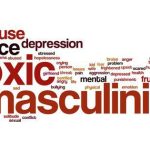Over the years, the understanding and usage of human rights have changed so much that it has become necessary to constantly review what they mean and how they are applied. The most commonly misused human right is the freedom of speech.
Many assume there is no clear delineation between freedom of speech, libel, slander, and defamation. However, the way human rights and freedom work is such that you are only right if your actions do not affect or harm a moral agent external to yourself. This is to say that your freedom of speech stops where the other person’s discomfort or abuse starts.
In this article, you’ll discover the meaning of freedom of speech, how it is being misused, and the right way to exercise your freedom of speech.
Table of Contents
What is Freedom of Speech?
Freedom of speech is often defined as the principle or declaration that supports an individual’s right to speak, write, or share their opinions without the fear of punishment from the government or the occurrence of interference or interruption.
It is also the freedom to speak on a wide range of topics, including but not limited to politics, childbirth, abortion, marriage and divorce, and religious and cultural matters without being attacked by parties being referred to.
Freedom of speech is also an individual’s right to hold the government accountable, criticize its arms, protest peacefully, and give information and ideas to the general public through the media.
The Misuse of Freedom of Speech, Penalties, and Gray Lines
-
Misuse of freedom of speech
In the Nigerian constitution, Chapter 4, Section 39, the freedom of expression is cited as thus:
“Every person shall be entitled to freedom of expression, including freedom to hold opinions and receive and impart ideas and information without interference.”
However, there are limitations to this freedom, as the Nigerian constitution states that this freedom is restricted when there is speech that incites violence or hate, defames another person, or slanderous statements.
Despite this restriction, it seems that many people are ignorant of the many slanderous or hateful comments they make daily in different ways, which includes the following;
a. Attacking other’s opinions: The major illustration for this is the conduct of Nigerians, old and young, on the popular conversations app X (formerly known as Twitter). This abuse of freedom is so rampant that many other Nigerians stay off the app or do not speak their mind for fear of being harassed or attacked for their opinions.
This also extends to thoughts and views that provoke attack or hate on a group, minority, tribe, or gender leading to a never-ending circle of the misuse of freedom of speech. Under the guise of speaking your mind or expressing your opinions without interference, many people have attacked and ‘dragged’ others over mistakes and offenses.
b. Defamation and slander: There have been so many instances of libel and slander on the app with little to no remedy. Rumors spread like wildfire through the assistance of tweets, retweets, and reposts. If a person or incident is trending, there are thousands of tweets that clearly abuse the freedom of speech.
Whenever someone is called out for defamatory comments, the defensive reply is that they were merely exercising their freedom of speech.
Besides the instances found on X, physical conversations and happenings have shown the abuse of freedom of speech in them. Through conversations you hear in workplaces, religious and political settings, you don’t need to be highly observant to notice defamation and slander occurring in everyday life.
The misuse of this right is at the heart of society and leads to the question of whether it should even be considered a right any longer. We also need to see whether or not there are precautions and penalties to check this rapidly growing tumor in society.
Read also: Secret Anonymous Messages: The Good, the Bad and the Ugly.
The Nigerian constitution has stipulated fines and penalties for deflation of character, slander, and libel.
-
The penalties for misuse of freedom of speech
In the criminal code, there are multiple instances of punishments for misuse of freedom of speech. These punishments range from community service to fines and imprisonment.
- Cybercrime: Under the Cybercrime Act, a range of offenses are listed and are punishable by fines ranging from seven million Naira to twenty million Naira and imprisonment of 15 years.
- Defamation: The defamation act in the Nigerian constitution provides criminal liability for defamation of character. Whoever is found guilty can be sentenced to imprisonment for up to two years.
- Promotion of public disorder: The Nigerian constitution classifies the promotion of public disorder as misuse of freedom, and the offenses listed are punishable by up to two years imprisonment.
Would you love to be part of a community of young Nigerians who are passionate and committed to one another’s growth and progress? If yes, join us here.
-
The gray lines
It is almost impossible to address the issue of human rights, morality, and opinions as matters in black and white. We should also understand that the government will not always respect the freedom of speech given to everyone.
There have been instances where people have argued that the punishments meted out to those who misuse the freedom of speech were too harsh. The fresh situations where it is not obvious who is to blame, especially in Nigeria, are as follows:
- In 2019, Channels Television had its license suspended by the federal government as punishment for broadcasting an interview with IPOB leader, Nnamdi Kanu.
- In 2021, the federal government banned Twitter seven months after the platform refused to remove ‘offensive’ tweets made by Nigerians.
In these situations, it would seem that the government was infringing on the rights of the citizens from one perspective. From another point of view, the government appears to be doing its best at keeping the abuse of the freedom of speech in check.
Trying to have a science or clear pattern for human opinions and thoughts is equivalent to trying to fill multiple baskets with water. Unlike managing the abuse of other human rights like the right to life, right to clothing and shelter, etc, the freedom of speech does not garner much attention when it comes to educating the citizens on the misuse, abuse, and management.
Read also: Social Media Influence on Nigerian Politics: Empowerment or Manipulation?
The Right Way to Exercise Freedom of Speech
Here are a couple of ways to responsibly exercise your freedom of speech;
- During protests, remember to clearly state your concerns without using degrading comments or insults towards the party you are displeased with.
- Always confirm the information and tips you hear about anyone before delivering such information to another party to avoid being charged with defamation.
- Do not be the first to incite violence, especially if you were not wronged. Always respect the victim’s decision.
- As a journalist or media personnel, ensure that you have permission and are guided by your profession’s policies to avoid being unlawfully arrested.
Conclusion
We must ensure not to infringe on other people’s right to be protected from attack, be it verbal or written. As citizens committed to living in a peaceful society, respecting the rights of others is a huge step to building a better nation.
To receive notifications of our latest valuable and insightful articles on how to be better citizens who will take the nation to higher levels, subscribe to our newsletter.
Edited by Oluwanifemi Akintomide.
About Author
- Student of Philosophy||Writer||Baker|| Content Writer|| Student Journalist|| Video Creative. I love books, anime, and games.
Latest entries
 SpiceDecember 3, 2023Toxic Masculinity: Why Men Would Rather Die Than Speak Up
SpiceDecember 3, 2023Toxic Masculinity: Why Men Would Rather Die Than Speak Up

 CampusOctober 2, 2023Alumni Success Stories: Inspirational Stories of Nigerian Graduates
CampusOctober 2, 2023Alumni Success Stories: Inspirational Stories of Nigerian Graduates

